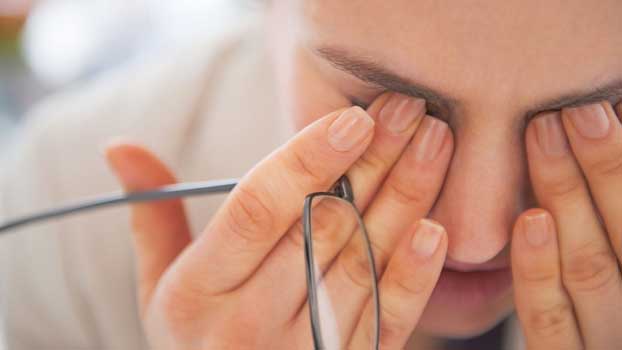Eye troubles among students increase

Due to pressure of online classes coupled with home confinement, students are getting addicted to being in front of digital screens, leading to increasing eye problems.
Parents and ophthalmologists pointed out that with movement limited in the last few months, students were passing more time than ever before with their smart devices which is causing eye problems.
Rehana Begum, a parent from the Azimpur area of the capital expressed concern over long screen time of her son said, “Before coronavirus he used smart devices, but now it seems he is using it for over 10 hours, my son Ratul remains glued to the screen. Whenever I ask, he replies that he is attending online classes or preparing assignments.”
She also mentioned that along with other problems, her son is having difficulty with his vision.
Another parent, wishing not to be named, from the same area echoed a similar view saying, “After lockdown, and educational institutions closed until December, they are spending the whole time with screen. Those who were away from the phone earlier have also become addicted. Now my son before eating or playing and online classes, asks for a phone every now and then. We can’t resist, but what else can be done?”
The parent also notes that now the classes are being conducted online. They keep looking at the monitor for hours. At present, entertainment means only mobile games.
Dr Fateh Rahman, Vitreo-Retina consultant at the Vision Eye Care hospital said, we are treating more eye patients than in the past, especially teenagers. The screen reliance has led to drastic changes in the lives of not just children, but adults also. Both physical and mental health is under threat.
And in this way the eye becomes dry, the retinal function is decreasing and minus power is increasing among students and youth, and the number of patients is also increasing, he added.
The specialist suggested that children, youth, adults must maintain a screen schedule to relax their eyes.
After half-an-hour of screen time, one must close their eyes for 30-50 seconds, this helps. Adjusting screen brightness, applying for eye protection with the screen, and making screen layout bigger can mitigate eye stress.”
Director of the National Institute of Ophthalmology & Hospital (NIOH) Professor Golam Mostafa said that looking at a computer, mobile or any other screen device is harmful for the eyes, and even more harmful to children. During the last two and a half months, children are more prone to eye and headaches, and the reason for this is the reflective error. That means they need glasses.
Many parents think that children don’t have any eye problems. That’s why they don't even test. Later, the problem then becomes more apparent for these children.
He suggested that minimizing screen time with a routine and taking care of eyes can resolve this problem.



